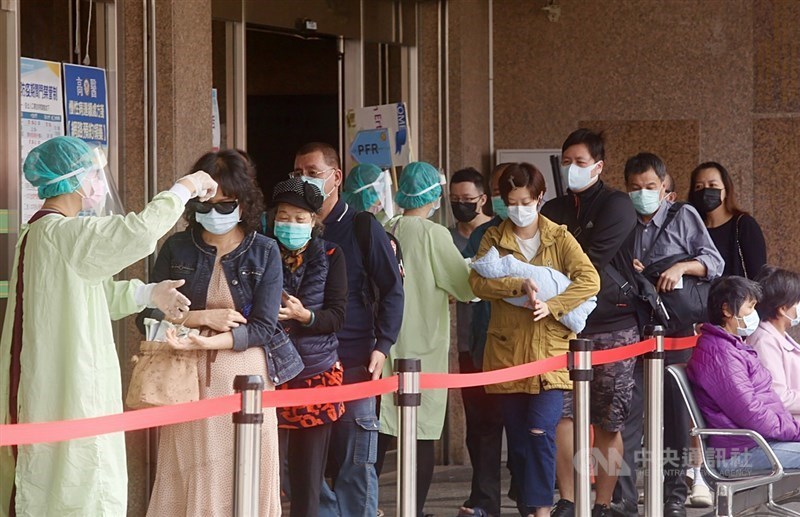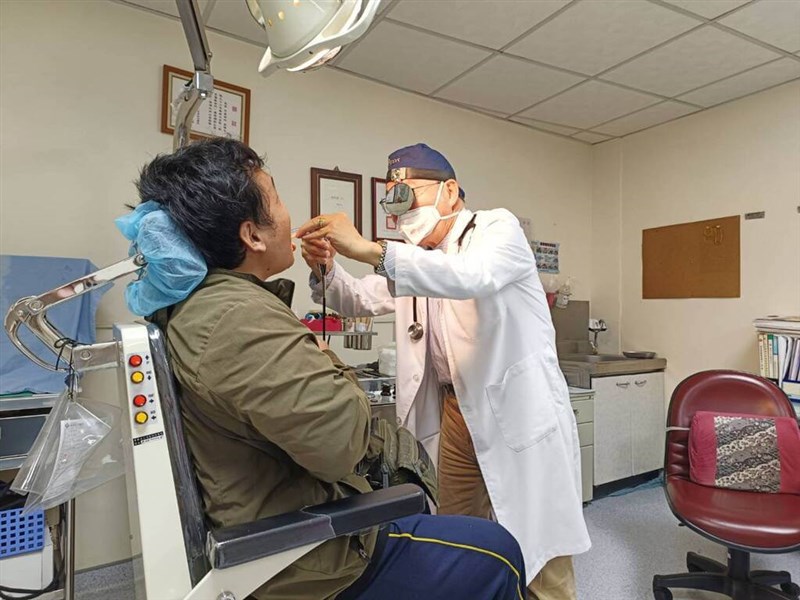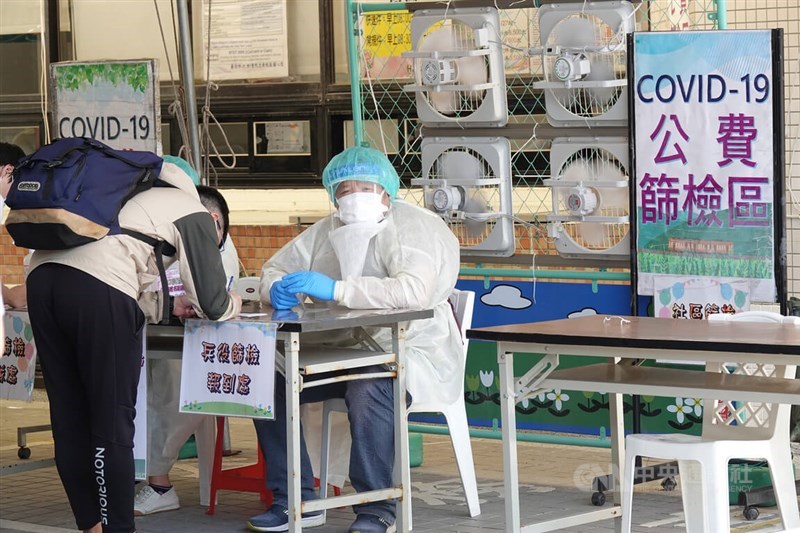
Taipei, May 24 (CNA) COVID-19 cases are surging in Taiwan, with the Centers for Disease Control (CDC) describing the ongoing wave of infections as "rapid and intense" and projecting that the outbreak will continue through the end of July. CNA has compiled key information on symptoms, the outbreak's trajectory, and vaccination.
How serious is the current COVID-19 outbreak in Taiwan?
A total of 19,097 outpatient and emergency visits related to COVID-19 were reported from May 11-17, marking an 88.2 percent increase from the previous week's 10,149 visits, according to data provided by the CDC at its regular news briefing on Tuesday.
The nearly 90 percent surge in case numbers also marks the sixth consecutive weekly increase, though the total remains below the 23,778 recorded during the same period last year, the CDC added.

As of this week, CDC spokesperson Lo Yi-chun (羅一鈞) told reporters on Friday that total visits had already exceeded 19,000 and estimated the number could double by the end of the week.
"The wave of infections is clearly on the rise and is truly both rapid and intense," Lo said, projecting that it will peak in mid to late June, with weekly outpatient and emergency visits possibly reaching or surpassing 100,000, and continuing through the end of July.
Why is this wave of infections so "rapid and intense"?
Lo attributed the recent surge in cases to a shift among Omicron-related variants. He explained that while the dominant variant in Taiwan six weeks ago was XEC, it has since been overtaken by NB.1.8.1 of the XDV lineage over the past five weeks.
NB.1.8.1 has strong immune evasion capabilities -- meaning it can more easily escape the body's existing defenses -- and higher transmissibility than other variants, Lo said, noting that the variant is also seeing a growing presence in neighboring countries.

Another factor behind the increase in infections, Lo said, is that nearly a year has passed since the last major COVID-19 outbreak in Taiwan, and immunity from natural infection has likely waned among those previously infected, making them susceptible again.
He added that heightened public awareness of COVID-19 in recent weeks has led more people to take rapid tests, which may also be a contributing factor to the rise in reported cases.
What are the characteristics of the ongoing outbreak?
Hwang Kao-pin (黃高彬), vice superintendent at the Center for Infection Control at China Medical University Hospital, told CNA that the variants driving the current outbreak in Taiwan are not causing more severe symptoms but are significantly "more contagious" than previous variants.
He said that it was due to mutations in the virus's genetic material, which have increased its affinity for human cells.

In terms of symptoms, Huang Li-min (黃立民), an attending physician in pediatric infectious diseases at National Taiwan University Hospital, said the most common symptoms remain a cough, runny nose, fever, and body aches, with some patients also experiencing abdominal pain and nausea.
One notable difference, Huang said, is that the new variants are more likely to cause severe throat inflammation, with symptoms like sore or dry throat more frequently reported.
Are vaccines and treatments still effective against new variants?
Addressing the XDV lineage to which the NB.1.8.1 variant belongs, Lo explained that it is a recombinant variant closely related to the JN.1 variant.

While variants under the XDV lineage have stronger immune evasion capabilities, the COVID-19 vaccines based on JN.1 -- currently offered to the public by the CDC -- still provide effective protection, Lo said.
Antiviral medications also remain effective against variants in the XDV lineage, he added.
Where to get vaccines and rapid test kits?
The CDC is offering publicly-funded JN.1-based COVID-19 vaccines to individuals aged 6 months or above in Taiwan. Those in high-risk groups -- such as individuals aged 65 and older -- who received one dose at least six months ago are also eligible for a second jab.
As of Friday, 3.144 million COVID-19 vaccine doses remained in stock, the CDC said, adding that the government will adjust distribution in response to rising vaccination demand.

Public willingness to get vaccinated has increased significantly, with 19,189 COVID-19 vaccine doses administered from Monday to Wednesday, roughly three times the 6,413 doses given during the same period last week, the CDC added.
As for rapid test kits, the Taiwan Food and Drug Administration (TFDA) has asked manufacturers to ramp up production and coordinated with the four major convenience store chains and pharmacies across Taiwan to make them available in stores, according to the CDC.
- Business
Taiwan shares open lower
11/13/2025 09:20 AM - Business
China Airlines to boost Europe routes, launch KLM codeshare
11/12/2025 10:59 PM - Society
Flooding persists in Hualien's Mingli Village after heavy rain
11/12/2025 10:43 PM - Society
2 Taiwanese men probed over false claims on VP Hsiao's IPAC speech
11/12/2025 10:11 PM - Cross-Strait
President, legislative speaker exchange barbs on China threat to lawmaker
11/12/2025 09:36 PM